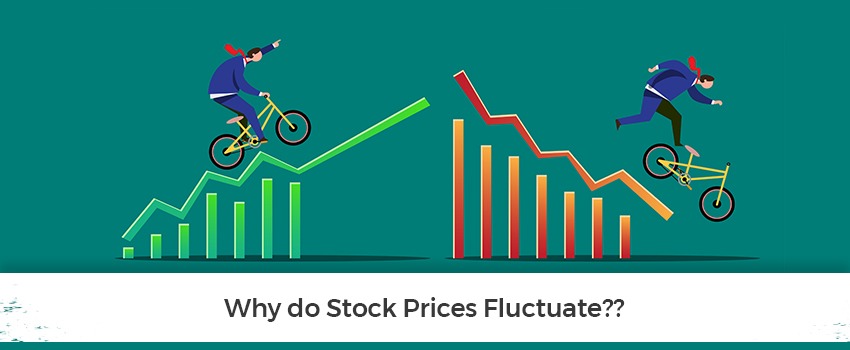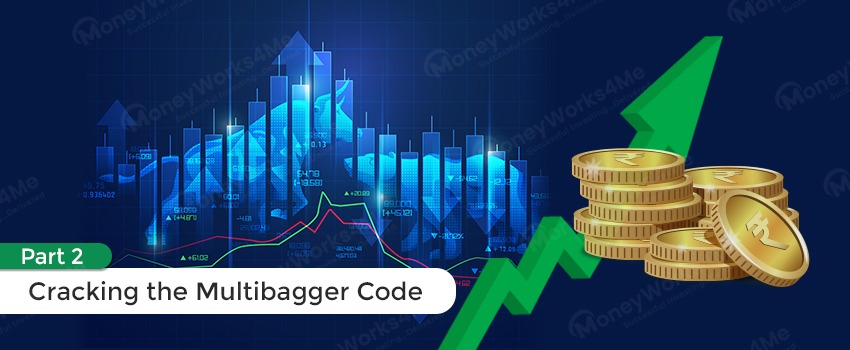The stock market is characterized as complex, unpredictable and ever changing. It moves with a life of its own, reacts to circumstances, and leaves investors either reaping rewards or with nothing at all.
So understanding what’s behind the constant motion of the market is essential in pre-empting the mood swings to gear you up for the testing times.
The market works on the basic principle of demand and supply. When investors buy more shares, the value goes up. On the other extreme, a drop in demand tips the scale, shares are sold and the price falls. The market essentially fluctuates as a reaction to investors’ behavior, so the key is in recognizing what instigates these human responses. Ask a person why they’re having an off day and the reasons could vary from a basic emotion to the bad weather. The same holds true for the stock market.A range of factors affect the stock market, starting from company related news to macroeconomic trends like inflation and oil prices!
Reasons for these fluctuations…
- Earnings: The value of a company is most adversely affected by the profit it makes. There is a lot of activity in the markets, surrounding the earning season. If the results are pleasing, the price goes up. If however they let you down, the worth of your stock plummets. However, analysis of the company fundamentals, will tell you if this is simply a momentary trend or a time to cut your losses.
- Emotions: Investment decisions are greatly impacted by two human emotions – Fear and Greed. A lot of investors start selling a stock after fear sets in, due to a temporary bad phase or fall in stock prices of the company. Similarly, quite a few of us lose out on a respectable gain, as greed for more gains holds us from booking profits.
- Anticipation: The market seems to react to gossip or news. In truth it’s more about investors’ perceptions. Say you hear about a company official retiring. You presume the worst and pull out your shares. Turns out later that you’ve overreacted, he’s been replaced by a better authority and things are back to normal.What you’ve responded to is an expectation of an outcome rather than to the actual situation.
- The Economy and World events: Economic factors also play an important role in stock price movements. For example, when inflation increases, the central bank raises the interest rates to slow this down. However, this implies a slowdown in sales, increase in costs and thus, lower profits! Hence, the stock price will plummet. Similarly, economic outlook of the country or major economies also have an impact on the stock market. The present volatility in the markets is a result of this uncertainty in the macroeconomic conditions. Apart from these, factors like Oil prices, currency movements,etc. also affect the price of a stock.
Stock Tactics:
Despite the market’s constant turbulence, investors have continued to hang on and make money. They’ve done so by keeping a level head and sticking to a strategy. Following are some of the strategies used by investors:-
- Buy and hold – i.e. invest for the long term: This strategy is exactly what it sounds like. You buy into a fundamentally sound company and hold onto your shares for the long term. To those that want to make a quick buck this might sound less than ideal, yet history has proven that it’s an effective road to take. An example is the great investor Warren Buffet, who is an advocate of this strategy. You might go through periods of inflation and losses, but the longer you hang on, the more likely you are to recover from the lows and then ride the highs.
- Day Trading: This is exactly the opposite of the buy and hold strategy. This strategy involves constant buying or selling of shares, based on prediction of the market movements. Investors employ a number of methods like technical or fundamental analysis to help them out, but at the end of the day, both intuition and timing play a bigger part. It involves buying at lows and selling at highs! If you get it right, you make a profit, but if you don’t you may end up losing a large amount of money.
Taking the mystery out of the market is vital to understanding what moves it. It’s a hell of a ride, but you can beat the punches.
At MoneyWorks4me, we follow the buy and hold strategy, as this a lower risk strategy and can give higher returns if you buy stocks at an attractive discount. The day trading strategy is highly risky! As stated above, though it can earn you high returns, you can also end up making huge losses.
If you liked what you read and would like to put it in to practice Register at MoneyWorks4me.com. You will get amazing FREE features that will enable you to invest in Stocks and Mutual Funds the right way.
Need help on Investing? And more….Puchho Befikar
Kyunki yeh paise ka mamala hai
Start Chat | Request a Callback | Call 020 6725 8333 | WhatsApp 8055769463










